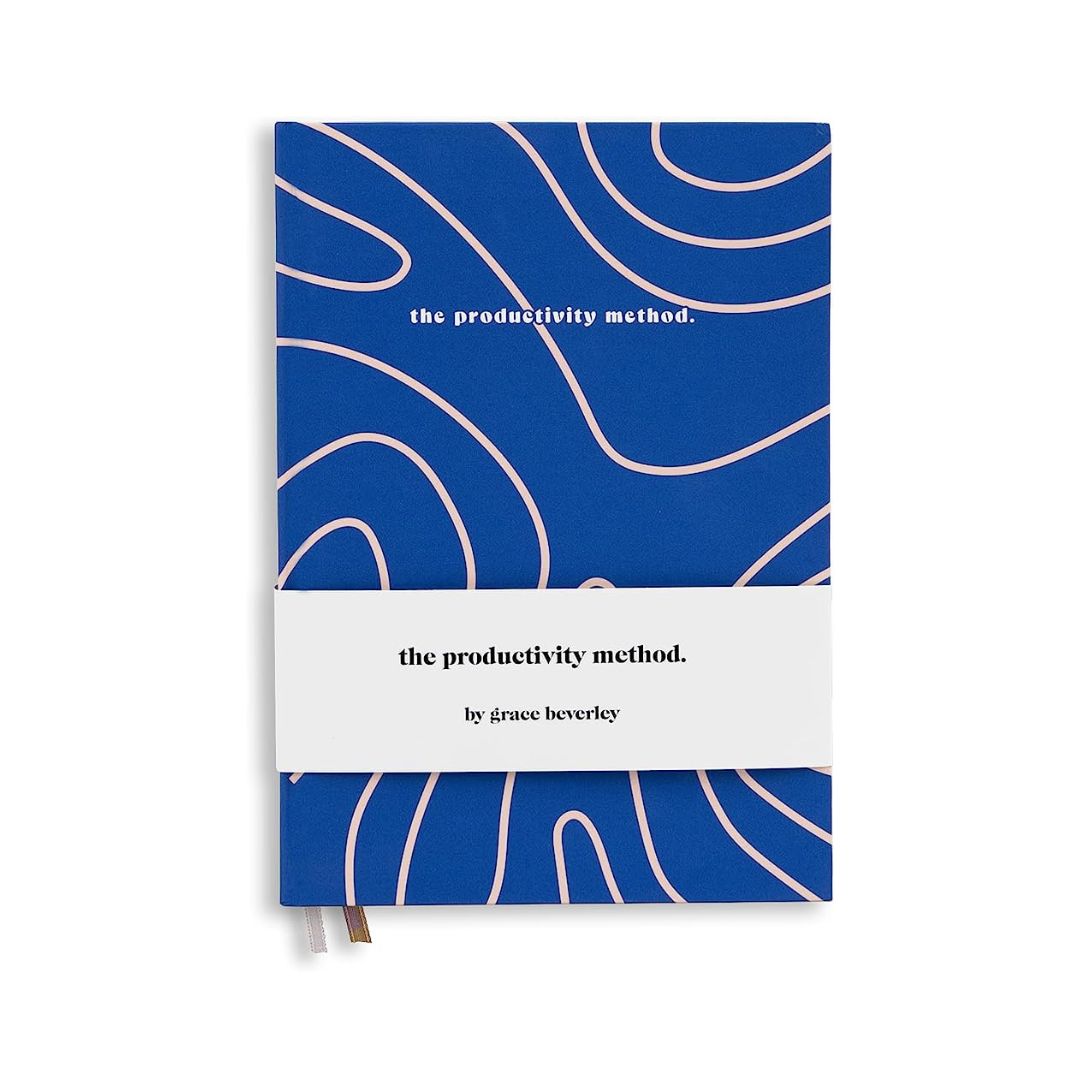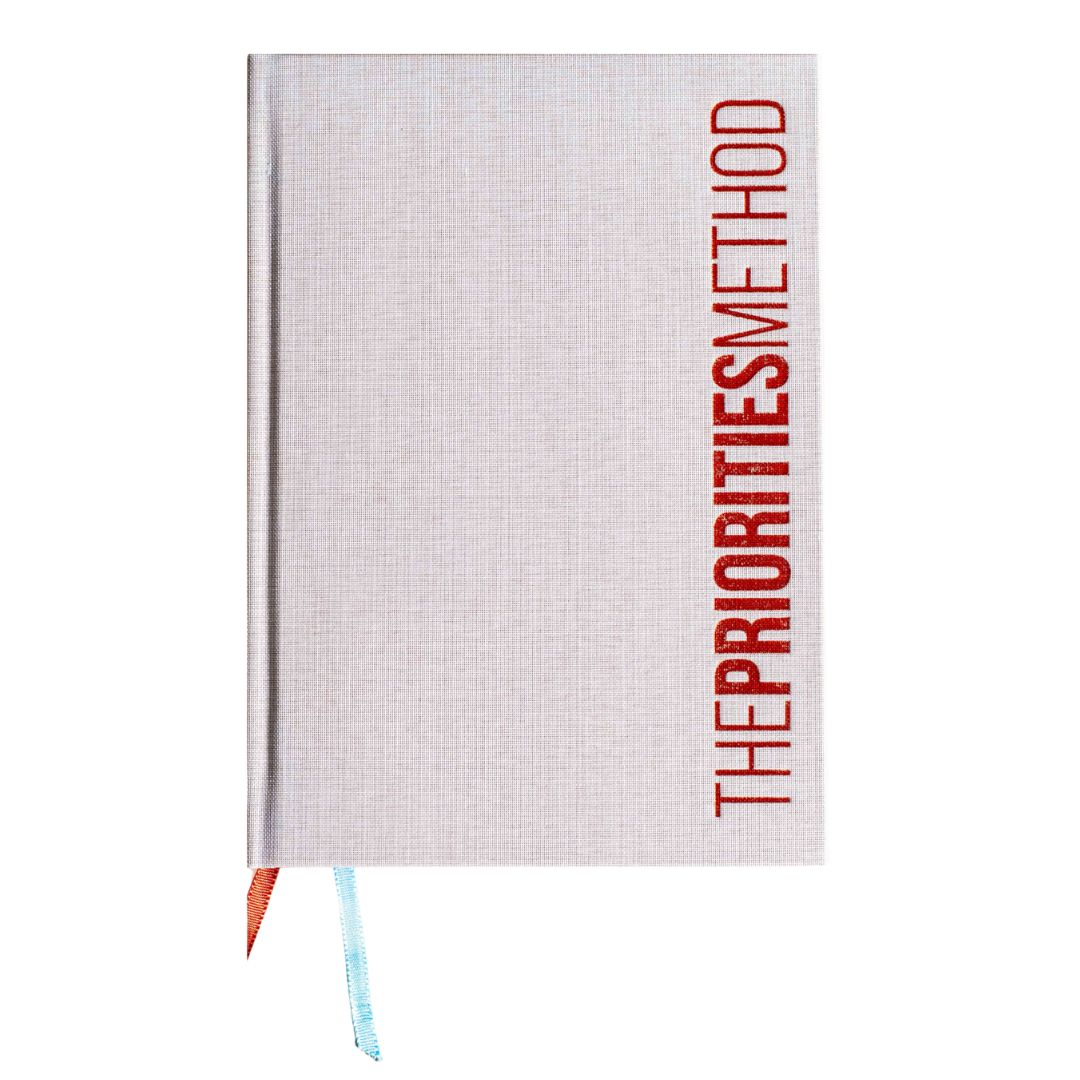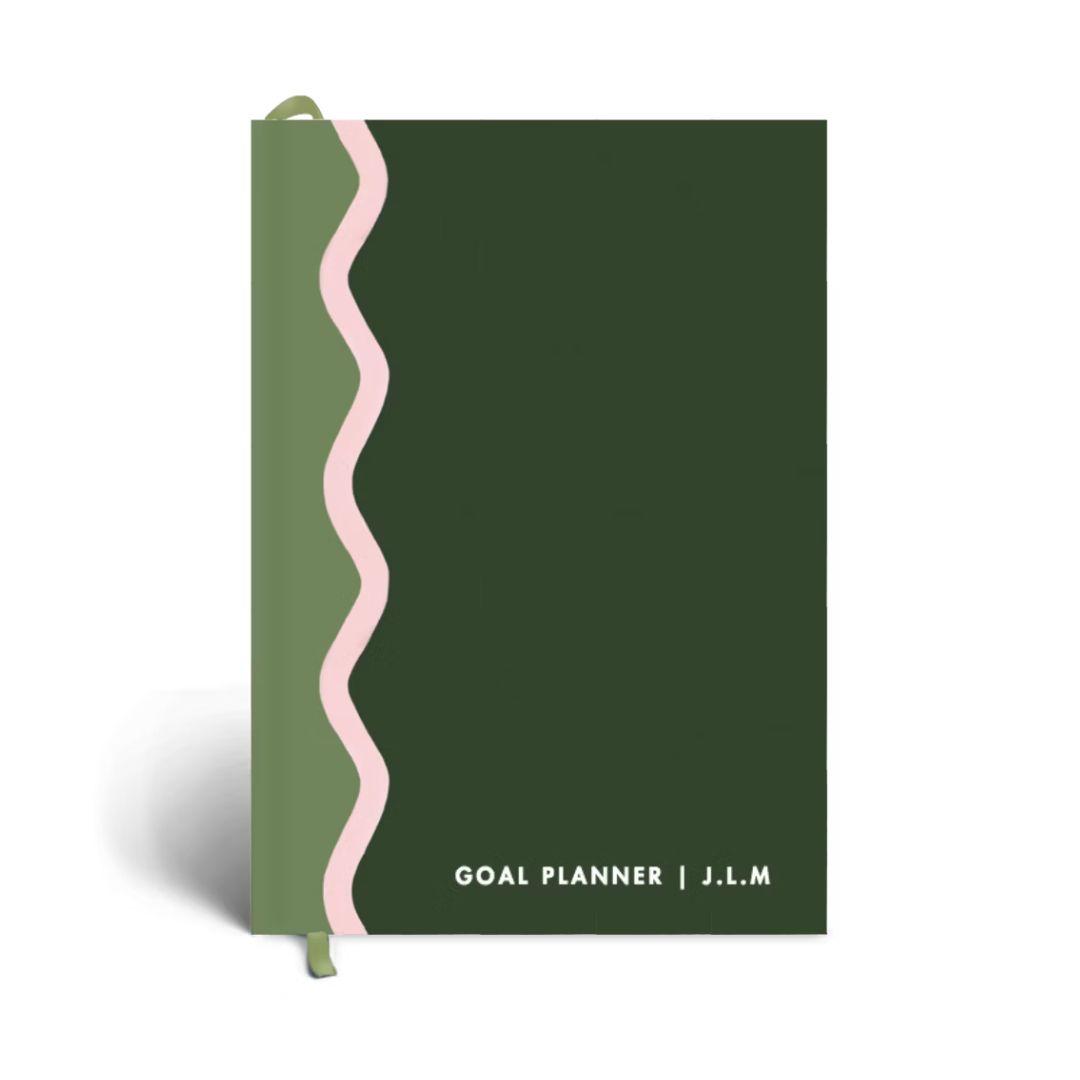I tried the productivity planner that broke the Internet - so, did it actually work to supercharge my focus?
It's been a journey ...
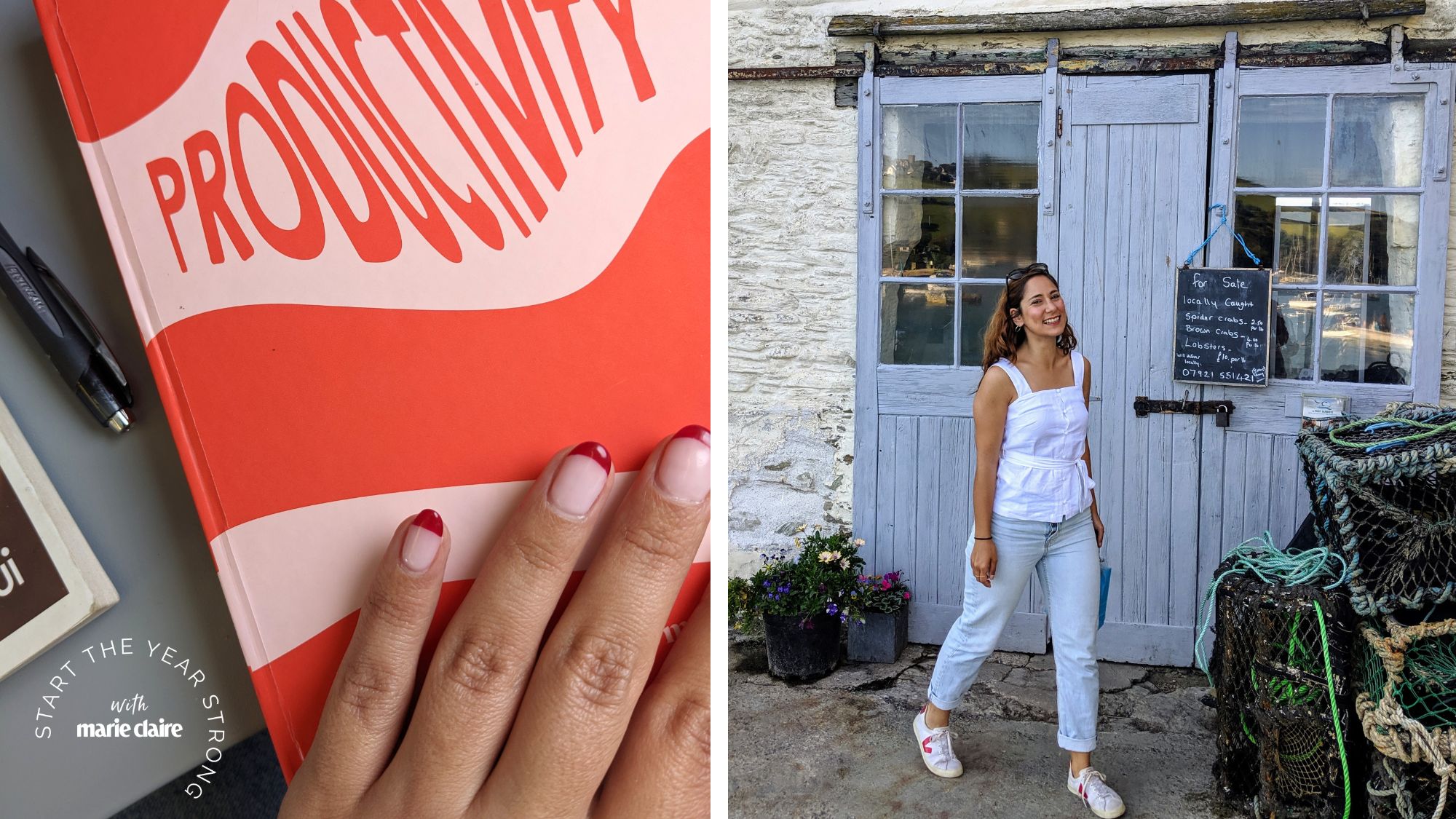

It's no exaggeration to say that every time I go on social media at current, I see yet another productivity planner review. As a freelance Health Writer who has to wear multiple different hats, they've long piqued my interest. Could they really help me lead a more productive life, use my time more efficiently, and avoid constantly feeling like I'm speeding towards burnout? Short answer: I was about to find out.
A few months ago, I caved and ordered one of the many on the market. I've now spent months trying Grace Beverley's viral Productivity Method journal, a journal so popular that they sold out several times. The fitness influencer and entrepreneur even launched a digital version in a bid to get her method to more customers.
While life isn't just about productivity - far from it - it's not a groundbreaking statement to say that life is busy. Multiple demands on your time, hectic schedules and a never ending to do list just seem like part and parcel of day to day life, right? In fact, according to a 2018 survey commissioned by the Mental Health Foundation, almost three-quarters of adults (74%) had felt so stressed in the previous twelve months that they felt overwhelmed or unable to cope. So anything designed to help maximise your time can only be a good thing, right?
Well... kind of. While social media is awash with hype for the "game-changing" wellness planners, many experts have also expressed their concern in recent months at the verging on toxic obsession with pushing yourself to max capacity. When is too much? And can an obsession with making every waking hour productive be harmful in and of itself? Author Emma Gannon coins it a "productivity shame" and reflects on how, "for many of us, our relationship with our output in life is deeply ingrained."
Know this: your productivity does not define your worth. Life is about so much more than how many to-do's you can tick off in a day. That said, if streamlining your workflow is a resolution for 2024, my review below might just come in handy. So grab a cuppa, get comfy and read on for the key lessons I learned, plus thoughts and tips from the experts. Don't miss our guides to morning routine ideas, goal setting, and the best self care podcasts, while you're here.
My honest productivity planner review:
What is a productivity planner?
Essentially, productivity planners are a diary or notebook that feature sections focused on goals, timetables and figuring out what you want to achieve.
They can differ depending on which type you opt for, but in Beverley's viral planners, daily to-dos are broken down into:
Celebrity news, beauty, fashion advice, and fascinating features, delivered straight to your inbox!
- Quick ticks
- Tasks
- Projects
- Non-negotiable items.
There are also sections for longer term goal setting. To truly understand how to make it work, I advise watching her YouTube explainer - trust me, it'll make a lot more sense than just trying to figure it out on your own.
Why are productivity planners so popular?
"Productivity planners are becoming very popular because they can significantly enhance efficiency and effectiveness," says Dr Becky Spelman, psychologist and founder at Private Therapy Clinic. They do this by promoting organisation, structure and cognitive engagement, which in turn increase your overall productivity, she adds.
"When you're able to prioritise tasks by breaking them down into manageable and actionable to-do's, you start to feel accomplished and motivated," says Spelman. She goes on to explain the psychological attraction of them: "Productivity planners are designed with goal-setting techniques in mind - when you visually see your progress, it taps into the psychological concept of the Zeigarnik effect (where unfinished tasks occupy your mind, driving you to complete them)."
@gracebeverley Ever since bombarding you all with my first idea for the ideal planner, you've been kind enough to bombard me back with digital planner requests. I'm a pen and paper girl, but I LOVE the idea of having my own personal dashboard that can be logged into from phone/laptop/wherever, and I do 100% get the appeal of being able to plan digitally. So, if we were going to make a digital planner, I needed it to be something I genuinely felt built on the planner concept and the productivity method that's been so popular, but also gave so much more than that (because, for full transparency, it was q pricey to build!!). I am SO excited by what we've created - you've probably heard of Notion, but if you're anything like me, you'll have found it a bit confusing to set up. With our digital planner, you'll get the below, automatically replicated onto your Notion, purchased once and yours forever, from your phone, laptop, iPad, all on the free version of Notion. The techies said that the time and money spent on it enabled it to be the 'best notion template they've ever seen, which makes this VERY exciting. Included in the digital planner: ✔️Yearly, monthly and weekly goals ✔️Habit tracker ✔️Vision board ✔️ Notes and docs organiser ✔️Workload calendar view ✔️Project folders and auto-created gantt charts ✔️Daily Productivity Method planning (aka, the planner!) ✔️Keeps track of quick ticks, tasks and projects ✔️Full task organisation and tracking. prioritisation features, stakeholders ✔️V Brain dumps template ✔️Resource list ✔️New project ideas template ✔️Meeting notes template ✔️Problems for future me template ✔️Full interactive and categorisable finance tracker ✔️Invoice tracker Available from 12pm tomorrow, it’ll be 30% off for the first 48 hours as a thank you for waiting a year for it! ❤️
♬ original sound - grace beverley
5 things I learnt from a viral productivity planner
I'll be honest, the reason Beverley's method chimed with me so much was because she said, straight out, in her video that her drive for productivity comes from a place of laziness. Sounds counter-intuitive, but Beverley explains that the reason she's so productive is because she just wants to get her tasks done efficiently and then be able to spend time on the things she loves. Makes sense, right?
I gave Beverley's physical planner a go (the digital one hadn't launched at the time) and here are my honest thoughts, plus the key lessons I learned - and am still learning - along the way.
1. You will never "finish" your to-do list, and that's okay
There's something incredibly satisfying about ticking off a task on a to-do list - it sends a spark of joy to the brain, I swear. Beverley has some thoughts on to-do lists though. Namely, that they are flawed by failing to differentiate between what is an important task and what is a less pressing matter, e.g. completing a work presentation vs putting on a wash. I do love a to-do list but when it's put like this, I get it.
Not to worry, though - Beverley's daily "quick tick" section is the place to list all the tasks that take five minutes or less (trust me, it's the most satisfying part of my planner). It also means that by putting more time consuming tasks and bigger projects in relevant sections I have more clarity on what's coming up and perhaps, where I need to direct my attention over coming days and weeks.
2. It's crucial to be honest and realistic about how long a task will take
Your time in a day truly is limited - I know, shock revelation. But, how often do you try to squeeze in a few more bits here and a few more there? I know I'm guilty of being - let's say, optimistic - with my time. I like trying to cram in multiple things in a day and I enjoy having flexibility with my schedule, but even I've learned that there is a limit to how much can be done in one day.
Beverley is a fan of time blocking and this has taught me a valuable lesson: to not only be honest about how much time a task will realistically take, but also being clear on how much time I want to dedicate to something. For example, if I've volunteered to proof read writing for a friend, do I want to put aside half an hour where I can concentrate and get it done or do I want to drag it out over hours by dipping in and out of it? Also, while it may only take me ten to fifteen minutes to dash around the supermarket to pick up a "few bits", have I factored in the ten minute walk each way?
It may seem pedantic, but it's only through being completely, brutally honest about how long tasks and activities take that you'll understand where all the time goes.
3. Good habits take time to form
It may sound simple, says Lily Silverton, a mindset and life coach who has just launched her own productivity planner, The Priorities Method, but if you want to create a habit, then you have to actually do it. "It's very easy to think of things we want to do, but much harder to action them," she says. Don't let that put you off though - just keep at it.
It's been said that it takes 28 days to form a new habit, so the idea that you'll ace using a productivity planner straightaway and remember to fill it in every day is just a tad unrealistic. Give yourself time to learn how it works, when suits you to focus on it and be kind to yourself if you miss a day or two.
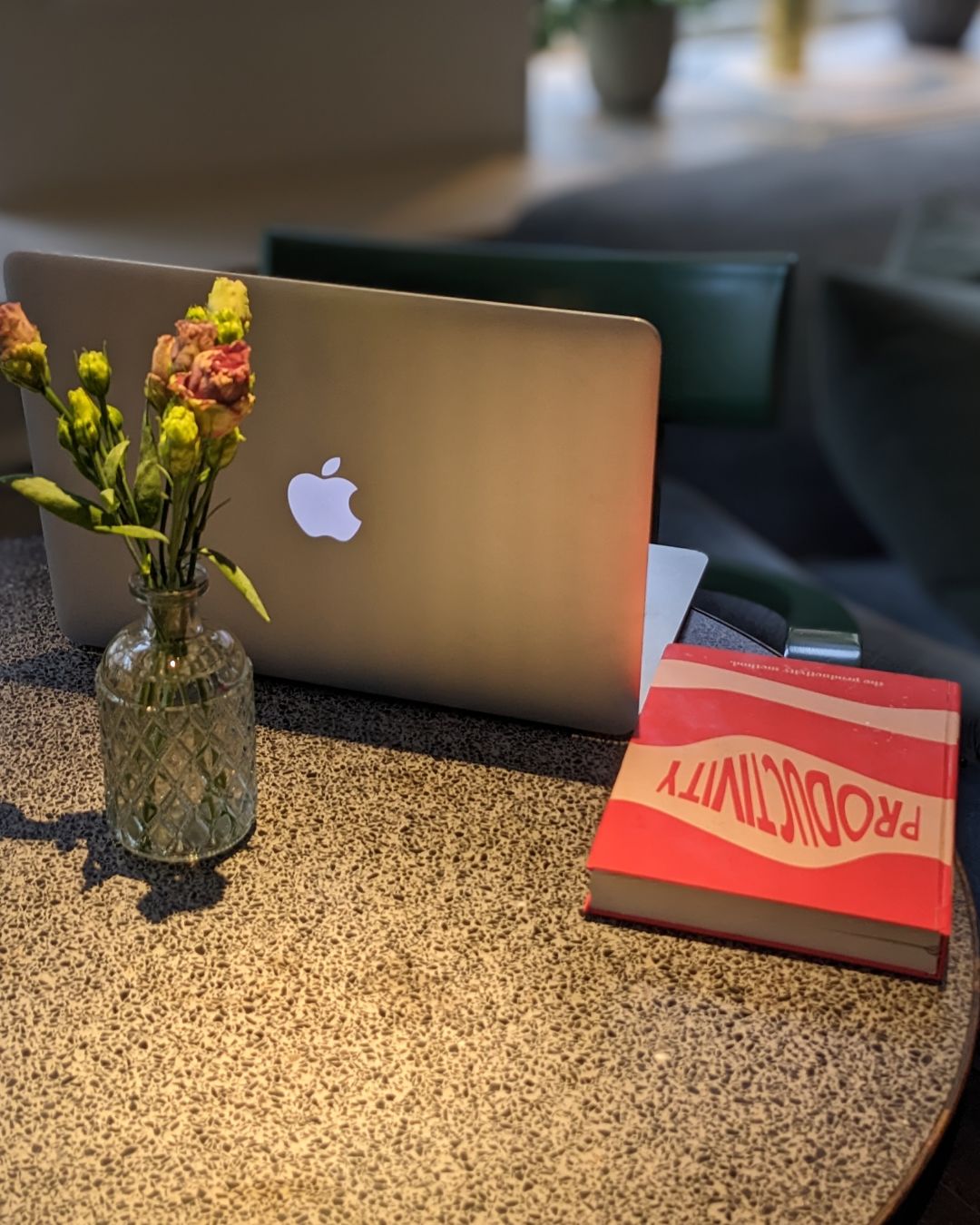
Amy testing the productivity planner.
4. Being productive is not about being "perfect"
"One of the main things I advise clients do is take a break if you need one, because you can always come back to it," says Silverton. The focus should be on the bigger picture, she explains.
Let's be honest: if you pick up a productivity planner or organiser and can keep on top of it, without flaw or failure, from the get go - well, you probably had your shit together already. For the rest of us, a few bumps along the way is normal, confirms Silverton.
I know that many a time I've prematurely ended a relationship with an organiser or planner just because I hadn't managed to tick everything off straightaway. In short: it made me feel like a failure. But it's never going to be realistic to keep a planner perfect or not messy, confirms Silverton. After all life is messy, she reminds me.
Similarly, Beverley's method doesn't say you have to get everything you've listed that day ticked off. In fact, it encourages you to continually reassess tasks - if something keeps popping up on your lists, why is that?
5. Not all productivity planners are the same
The stack of planners, diaries and notebooks I've accumulated over the years, whenever I fancied a "fresh" and "more organised" start, would be a sizeable stack. Some versions just haven't worked for me, be it because of the layout, method or perhaps even, the timing. It really has been a process of trial and error.
Personally, I've found Beverley's approach works for me at the moment. That doesn't mean it works all of the time, but when it does and I have a period of following the technique well, it leaves me feeling happy and fulfilled.
Shop MC UK's go-to planners now:
How can I be more productive with my planner?
Short answer: most have in-built sections which will prompt productivity, including quick tick lists and sections for bigger to-do's. If your planner doesn't have this, an idea is to section it up into these two sections, with space for non-negotiable need-to-do's, too.
Amy Sedghi is a freelance journalist, specialising in health and fitness, travel, beauty, sustainability and cycling.
Having started her career in The Guardian newsroom working with an award-winning team, Amy's proud to have reported on a variety of topics, speaking to a range of voices and travelling far and wide to do so. From interviews on ski lifts to writing up breaking stories outside courtrooms, Amy is used to reporting from a range of locations (she’s even been known to type up a story in a tent).
She also loves being active, spending time outdoors and travelling - with some of her favourite features she’s worked on combining all three. Cycling and eating her way round the Isle of Man, learning to sail on the Côte d'Azur and traversing the Caminito del Rey path in Spain are just some of her highlights.
Covering a diverse range of subjects appeals to Amy. One minute she may be writing about her online styling session with Katie Holmes’ stylist and the next she’s transporting readers to the basketball courts of Haringey where she joined a group trying to lower knife crime in the capital.
While at university, Amy was awarded The Media Society bursary. Following her stint at the Guardian, Amy worked at Google and as well as writing for Marie Claire, she regularly contributes interviews, features and articles to National Geographic Traveller, The Guardian, The Independent, The Telegraph, Stylist, Refinery29, Glorious Sport, Cycling Weekly and Rouleur.
When she’s not writing, Amy can be found trying to get through her towering stack of books-to-read, cycling down at Herne Hill Velodrome or looking for the next place to eat and drink with friends.
